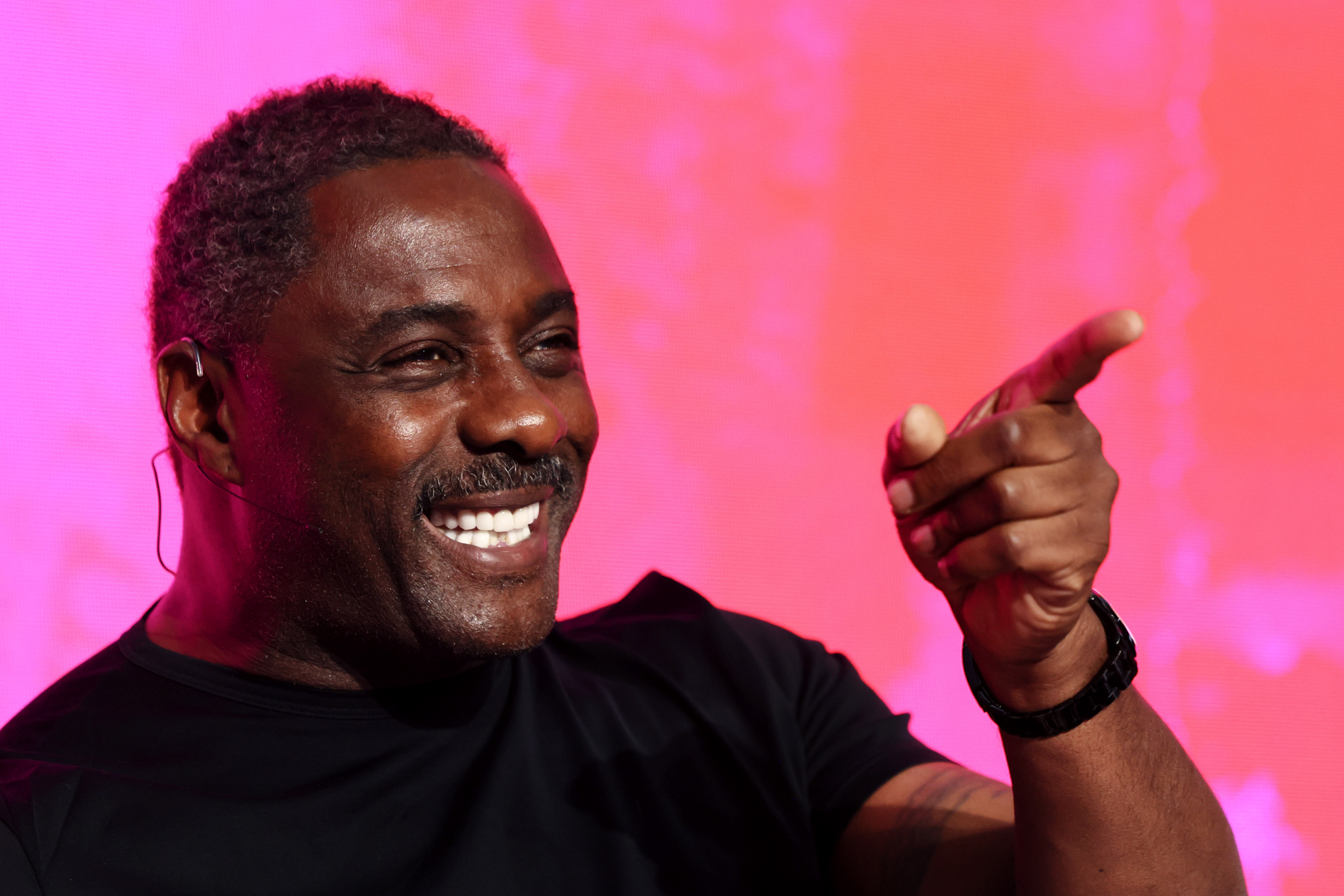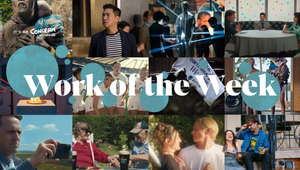
Idris Elba on African Creativity and Neurodivergence at SXSW: ‘Fame Is Not the Price, It’s What You Do With It’

Idris Elba is launching a tool for African creatives to be paid internationally, he revealed at SXSW London. In the same session he discussed his work on Talking Scripts – a project with writer and director Stefan Schwartz to make the film industry more accessible to neurodivergent people. He likes doing “a little bit of everything”, as he said on his panel.
Broadcaster and podcaster Clara Amfo led the panel with headlining Idris Elba, writer and director Stefan Schwartz, creative technologist Manon Dave. Later on Managing Director Kwadwo Owusu-Agyeman and DJ Vyrusky joined to talk about Idris’ payment tool Akuna Wallet.
Talking Scripts – Helping Neurodivergent People in the Film Industry
Idris and Stefan said they created Talking Scripts to help people in the film industry. They partnered and collaborated with each other to create a platform that reads scripts out loud and even uses different tones and voices to enhance the experience.
Idris shared how he struggled with his dyslexia throughout his career, even though he “didn’t know it at the time”, he found “reading scripts very difficult”.
He continued: “It became a bit of a hindrance for me, when you're reading a lot of different scripts at the same time.” He said Stefan and him bonded over finding inclusive ways for people to absorb scripts.
Stefan added that Talking Scripts could help people of different backgrounds get into the film industry. “It kind of came out of necessity, and realising that any sort of neurodiversity, ADHD or people with English as a second language, have that same fear of getting into it, and even people who want to be in the creative industry who don't want to have to read everything.”

African Creativity and the Birth of Akuna Wallets
Idris actively wants to “empower” African creatives and storytellers. That is why he launched Akuna Wallet, a blockchain-powered digital wallet designed for creators. Created by The Akuna Group, founded by Idris Elba, and developed by Manon Dave and The Stellar Development Foundation, Akuna Wallet removes barriers to Ghanaian creators receiving payment and provides new access to the global creative economy.
With the help of local regulators, Akuna Wallet alleviates one of the biggest obstacles facing Ghanaian creators when exporting their work internationally. Popular global content platforms that offer monetisation often require an international bank account or do not accept Ghanaian banks for payouts.
By offering digital workers and creators – including artists, musicians, designers and more – a wallet that can receive international payments, Akuna removes that barrier, allowing creators to get paid directly independent from their location.
With his tool Akuna Wallets, he is now trying to make creative work in Africa more accessible. He wants creators to have opportunities “across borders within Africa, but also outside of Africa.”
He adds: “Africa, for many reasons, gets overlooked as an environment that has very rich physicality.” Idris thinks this is partly due to the lack of data. By 2030, Africa is projected to produce up to 10% of global exports of creative goods, valued at around $200 billion (or 4% of Africa’s GDP), and could create more than 20 million work opportunities, according to speakers at the CANEX Summit at the IATF 2023.
Even though the Akuna Wallet was launched in Ghana and created with the help of the national bank, Idris wants the tool to be used across the continent in the future.
The platform has already helped musicians like Ghanaian DJ Vyrusky. “You just want things to be sorted” while you are in between shows and concerts, he says, and instead you have to deal with banking problems. Now, creatives might be incentivised to stay in the country and build their career there instead of trying to leave. “There is a shift,” he says. “You see people using the tools.”

The future of cinema – Creating an “African Odeon”?
Idris sees huge untapped potential in the African continent. He says a lot of what he wants to do with Akuna Group is: “How do I get young people to make a film tell a story, whether it's a short order feature, utilizing their funds, utilizing AI, utilizing a hybrid of finding ways to finance their films and distribute these films, that's the sort of mindset I'm thinking about. What does that actually look like?”
He also wants to invest in new cinemas and create an “African Odeon”, so to speak. There are currently only 1,651 screens across the continent, meaning only one cinema screen per 787,402 people. “Building the strength in the economy around the creators is one thing, and then the distribution of it.”
Capital for change
“Imagination makes the world go around,” Idris stressed over and over again during the talk. He wants to make young people understand that “their capital, their wealth, their fortune, is within themselves, within that creative tool set and being able to articulate it.” He added: "Part of the reason why I do a little bit of everything and annoy the fuck out of everyone is because I just feel like it's better that you kind of illustrate to young people, just try it. Just go for it, and before you know it, they're finding wealth within themselves.”















